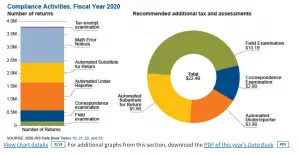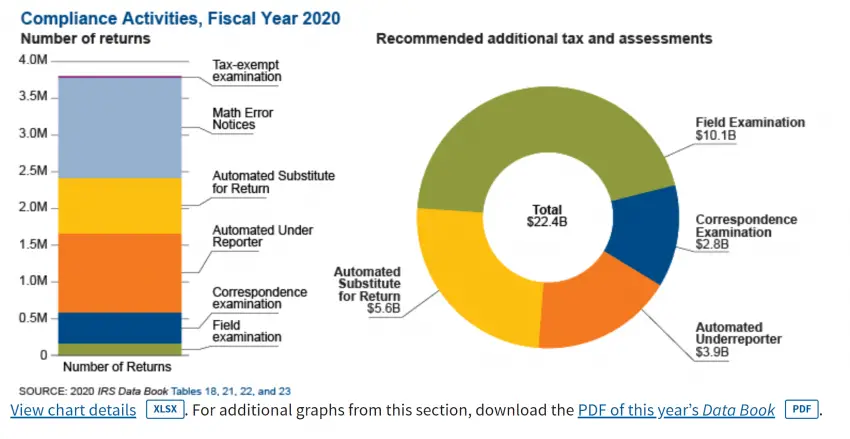There’s nothing worse than getting that dreaded letter in the mail from the IRS, notifying you that you’re being audited.
But there are a few things you can do to avoid an audit – and we’re going to tell you what they are. Based on our 22 years of experience preparing thousands of returns, we believe Audits will most likely focus on individual who are small business owners and individual taxpayers who are in high income or have rental real estate.
In this article we will share some ideas and strategies that will help you learn How to Avoid an IRS Audit
Contents
What is an IRS Audit?
IRS examinations are conducted to ensure that taxpayers are accurately reporting their income and paying the correct amount of taxes. Internal Revenue Service will typically Audit up to three years of taxes.
The IRS may select a taxpayer for an audit based on several factors, including discrepancies between the information reported on their taxes and information received from third-party sources, such as banks or employers.
During an IRS Examination, the taxpayer will be asked to provide supporting documentation for the items reported on their return. The IRS auditor will then review this documentation and determine whether the taxpayer owes additional taxes.
If so, the taxpayer will be required to pay the outstanding amount, Self Employment Tax, plus interest and penalties.
In some cases, the IRS may also recommend criminal charges be filed.

How to Avoid a Tax Audit?
You can follow the following tips and avoid Red Flags that can result in an Audit. If you have your own business or are Self Employed, pay special attention as your chance of getting audited is much higher than someone earning a W 2.
Don’t Use problem tax preparers
Many audits result when the IRS deems a Tax Return preparer is preparing fraudulent returns either intentionally or due to lack of knowledge. This is a Big Red Flag!!
Per IRS Guidelines “Tax fraud generally involves the preparation and filing of false income tax returns by preparers who claim inflated personal or business expenses, false deductions, unallowable earned income tax credit or excessive exemptions on returns prepared for their clients”.
The IRS highly recommends Tax Pros who are ethical and competent. Here is a link from the IRS website where you can find competent tax preparers and see their credentials. Here is link for IRS Tax Preparer Directory.

Don’t Make Calculation Mistakes on Your Tax Return
Many Returns are audited as a result of mistakes on the Tax return. Either due to missing income, estimated expenses or calculation mistakes.
It’s highly recommended that you use either a competent and experience tax preparer, or a software such as Tax Act or TurboTax.
If you are Self Employed then you have a higher chance as compared to a W2 wage earner. When you are preparing your small business tax return, make sure you actually total your expenses and not guestimate your income and use round numbers.
These Round numbers such as 10,000 indicates to the Internal Revenue Service that you are estimating your expenses and you will be likely to be audited.
Don’t report large business loss against your W2 income
Many tax payers end up setting up small businesses while they work at their main job.
Since they are just starting a business many times they have a lot of expenses and very little income. As result of that many tax payers have huge loss on their Schedule C business Tax return against their W2 income.
The IRS frequently audits such returns. If you like to avoid going though an audit, avoid taken large losses against your income.
Don’t Amend your return, unless you have to
Amended returns are usually reviewed by IRS personnel very carefully hence, your chance of getting an audit is extremely high especially when you are lowering your taxable income.
Ideally you want to avoid amending returns unless you made a mistake or forgot to include any income. If you have to amend a return, use a qualified tax professional.
Don’t Take Excess Deductions or Tax Credit
Be very careful when you are taking deductions such as business expenses, Home Office Deduction, Charity and medical expenses.
The IRS typically compares your income and deductions to others at the same time and sees if you are within a bell curve or not.
If you are claiming extremely high deductions, it’s highly likely that you will get audited. Make sure you keep all your receipts for business expenses and charity donations.
Similarly only claim Tax Credit’s you are entitled to.
If you are a S Corp Shareholder and perform work within the S Corp, then you are required to take reasonable Salary from S Corp. You need to Run Payroll from your S Corp for yourself just like an employee(w2) and file 941 & 940 and pay your payroll taxes.
You need to pay yourself salary that you will pay someone else if they were to do exactly what you do. This is market rate for the position you hold in the company and type of work you perform.
We have seen recently rise in audits for S Corps for shareholders that do not take reasonable salary at all or take very small salary. Internal Revenue Service is requiring all shareholders to start taking reasonable salary or face tax audit.
Pro Tip: Do you know if you file Schedule C, you have very high chance of an Audit.
Final thoughts
No one wants to go through an IRS examination, but there are some things you can do to make the process a little less daunting.
Here at our blog, we want to help taxpayers understand what triggers an audit and how they can avoid them.
We’ve also outlined some steps you can take if you find yourself in the unfortunate situation of being audited by the IRS.
So continue reading our blog for more helpful tips on tax season and audits!
Learn More
31 Best Tax Deductions for Truckers & Owner Operators
Benefits of Cost Segregation Study
Article Written By:
Navjeet Chahal, EA






10 thoughts on “How to Avoid an IRS Audit? (in 2022)”